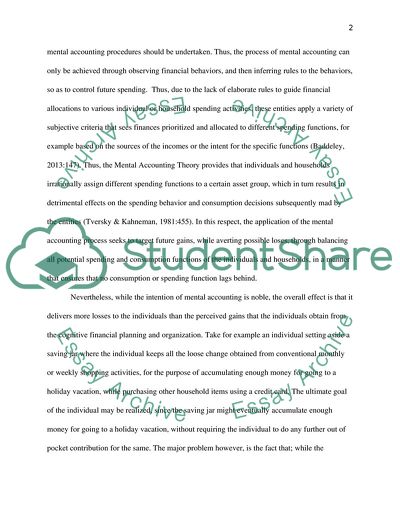Cite this document
(Mental Accounting Matters Essay Example | Topics and Well Written Essays - 1750 words, n.d.)
Mental Accounting Matters Essay Example | Topics and Well Written Essays - 1750 words. Retrieved from https://studentshare.org/finance-accounting/1664538-behavioural-economics
Mental Accounting Matters Essay Example | Topics and Well Written Essays - 1750 words. Retrieved from https://studentshare.org/finance-accounting/1664538-behavioural-economics
(Mental Accounting Matters Essay Example | Topics and Well Written Essays - 1750 Words)
Mental Accounting Matters Essay Example | Topics and Well Written Essays - 1750 Words. https://studentshare.org/finance-accounting/1664538-behavioural-economics.
Mental Accounting Matters Essay Example | Topics and Well Written Essays - 1750 Words. https://studentshare.org/finance-accounting/1664538-behavioural-economics.
“Mental Accounting Matters Essay Example | Topics and Well Written Essays - 1750 Words”, n.d. https://studentshare.org/finance-accounting/1664538-behavioural-economics.


